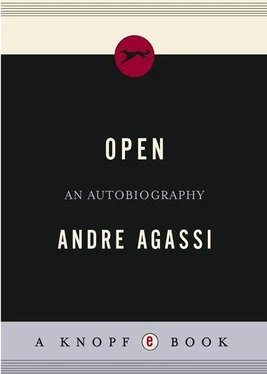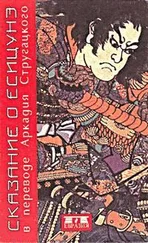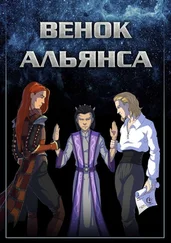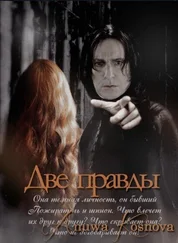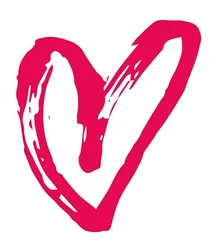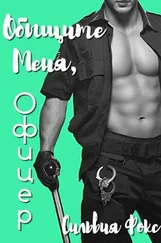Unknown - i a3f9967826fa0ec9
Здесь есть возможность читать онлайн «Unknown - i a3f9967826fa0ec9» весь текст электронной книги совершенно бесплатно (целиком полную версию без сокращений). В некоторых случаях можно слушать аудио, скачать через торрент в формате fb2 и присутствует краткое содержание. Жанр: Старинная литература, на английском языке. Описание произведения, (предисловие) а так же отзывы посетителей доступны на портале библиотеки ЛибКат.
- Название:i a3f9967826fa0ec9
- Автор:
- Жанр:
- Год:неизвестен
- ISBN:нет данных
- Рейтинг книги:5 / 5. Голосов: 1
-
Избранное:Добавить в избранное
- Отзывы:
-
Ваша оценка:
- 100
- 1
- 2
- 3
- 4
- 5
i a3f9967826fa0ec9: краткое содержание, описание и аннотация
Предлагаем к чтению аннотацию, описание, краткое содержание или предисловие (зависит от того, что написал сам автор книги «i a3f9967826fa0ec9»). Если вы не нашли необходимую информацию о книге — напишите в комментариях, мы постараемся отыскать её.
i a3f9967826fa0ec9 — читать онлайн бесплатно полную книгу (весь текст) целиком
Ниже представлен текст книги, разбитый по страницам. Система сохранения места последней прочитанной страницы, позволяет с удобством читать онлайн бесплатно книгу «i a3f9967826fa0ec9», без необходимости каждый раз заново искать на чём Вы остановились. Поставьте закладку, и сможете в любой момент перейти на страницу, на которой закончили чтение.
Интервал:
Закладка:
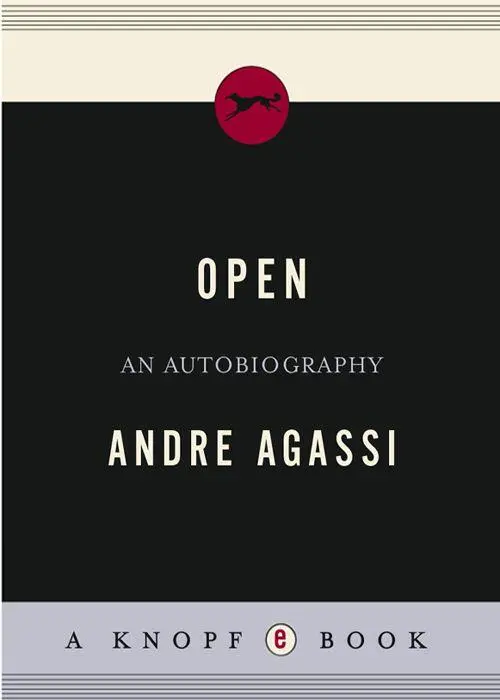
Open: An Autobiography
For Stefanie, Jaden, and Jaz
One cannot always tell what it is that keeps us shut in, confines us, seems to bury us, but still one feels certain barriers, certain gates, certain walls. Is all this imagination, fantasy? I do not think so. And then one asks: My God! Is it for long, is it for ever, is it for eternity? Do you know what frees one from this captivity? It is very deep serious affection. Being friends, being brothers, love, that is what opens the prison by supreme power, by some magic force.
—Vincent van Gogh, letter to his brother, July 1880
THE END
I OPEN MY EYES and don’t know where I am or who I am. Not all that unusual—I’ve spent half my life not knowing. Still, this feels different. This confusion is more frightening.
More total.
I look up. I’m lying on the floor beside the bed. I remember now. I moved from the bed to the floor in the middle of the night. I do that most nights. Better for my back. Too many hours on a soft mattress causes agony. I count to three, then start the long, difficult process of standing. With a cough, a groan, I roll onto my side, then curl into the fetal position, then flip over onto my stomach. Now I wait, and wait, for the blood to start pumping.
I’m a young man, relatively speaking. Thirty-six. But I wake as if ninety-six. After three decades of sprinting, stopping on a dime, jumping high and landing hard, my body no longer feels like my body, especially in the morning. Consequently my mind doesn’t feel like my mind. Upon opening my eyes I’m a stranger to myself, and while, again, this isn’t new, in the mornings it’s more pronounced. I run quickly through the basic facts. My name is Andre Agassi. My wife’s name is Stefanie Graf. We have two children, a son and daughter, five and three. We live in Las Vegas, Nevada, but currently reside in a suite at the Four Seasons hotel in New York City, because I’m playing in the 2006 U.S. Open. My last U.S. Open. In fact my last tournament ever. I play tennis for a living, even though I hate tennis, hate it with a dark and secret passion, and always have.
As this last piece of identity falls into place, I slide to my knees and in a whisper I say: Please let this be over.
Then: I’m not ready for it to be over.
Now, from the next room, I hear Stefanie and the children. They’re eating breakfast, talking, laughing. My overwhelming desire to see and touch them, plus a powerful craving for caffeine, gives me the inspiration I need to hoist myself up, to go vertical. Hate brings me to my knees, love gets me on my feet.
I glance at the bedside clock. Seven thirty. Stefanie let me sleep in. The fatigue of these final days has been severe. Apart from the physical strain, there is the exhausting torrent of emotions set loose by my pending retirement. Now, rising from the center of the fatigue comes the first wave of pain. I grab my back. It grabs me. I feel as if someone snuck in during the night and attached one of those anti-theft steering wheel locks to my spine. How can I play in the U.S. Open with the Club on my spine? Will the last match of my career be a forfeit?
I was born with spondylolisthesis, meaning a bottom vertebra that parted from the other vertebrae, struck out on its own, rebelled. (It’s the main reason for my pigeon-toed walk.) With this one vertebra out of sync, there’s less room for the nerves inside the column of my spine, and with the slightest movement the nerves feel that much more crowded. Throw in two herniated discs and a bone that won’t stop growing in a futile effort to protect the damaged area, and those nerves start to feel downright claustrophobic. When the nerves protest their cramped quarters, when they send out distress signals, a pain runs up and down my leg that makes me suck in my breath and speak in tongues. At such moments the only relief is to lie down and wait. Sometimes, however, the moment arrives in the middle of a match. Then the only remedy is to alter my game—swing differently, run differently, do everything differently.
That’s when my muscles spasm. Everyone avoids change; muscles can’t abide it. Told to change, my muscles join the spinal rebellion, and soon my whole body is at war with itself.
Gil, my trainer, my friend, my surrogate father, explains it this way: Your body is saying it doesn’t want to do this anymore.
My body has been saying that for a long time, I tell Gil. Almost as long as I’ve been saying it.
Since January, however, my body has been shouting it. My body doesn’t want to retire—my body has already retired. My body has moved to Florida and bought a condo and white Sansabelts. So I’ve been negotiating with my body, asking it to come out of retirement for a few hours here, a few hours there. Much of this negotiation revolves around a cortisone shot that temporarily dulls the pain. Before the shot works, however, it causes its own torments.
I got one yesterday, so I could play tonight. It was the third shot this year, the thirteenth of my career, and by far the most alarming. The doctor, not my regular doctor, told me brusquely to assume the position. I stretched out on his table, face down, and his nurse yanked down my shorts. The doctor said he needed to get his seven-inch needle as close to the inflamed nerves as possible. But he couldn’t enter directly, because my herniated discs and bone spur were blocking the path. His attempts to circumvent them, to break the Club, sent me through the roof. First he inserted the needle. Then he positioned a big machine over my back to see how close the needle was to the nerves. He needed to get that needle almost flush against the nerves, he said, without actually touching. If it were to touch the nerves, even if it were to only nick the nerves, the pain would ruin me for the tournament. It could also be life-changing.
In and out and around, he maneuvered the needle, until my eyes filled with water.
Finally he hit the spot. Bull’s-eye, he said.
In went the cortisone. The burning sensation made me bite my lip. Then came the pressure. I felt infused, embalmed. The tiny space in my spine where the nerves are housed began to feel vacuum packed. The pressure built until I thought my back would burst.
Pressure is how you know everything’s working, the doctor said.
Words to live by, Doc.
Soon the pain felt wonderful, almost sweet, because it was the kind that you can tell precedes relief. But maybe all pain is like that.
MY FAMILY IS GROWING LOUDER. I limp out to the living room of our suite. My son, Jaden, and my daughter, Jaz, see me and scream. Daddy, Daddy! They jump up and down and want to leap on me. I stop and brace myself, stand before them like a mime imitating a tree in winter. They stop just before leaping, because they know Daddy is delicate these days, Daddy will shatter if they touch him too hard. I pat their faces and kiss their cheeks and join them at the breakfast table.
Jaden asks if today is the day.
Yes.
You’re playing?
Yes.
And then after today are you retire?
A new word he and his younger sister have learned. Retired. When they say it, they always leave off the last letter. For them it’s retire, forever ongoing, permanently in the present tense. Maybe they know something I don’t.
Not if I win, son. If I win tonight, I keep playing.
But if you lose—we can have a dog?
To the children, retire equals puppy. Stefanie and I have promised them that when I stop training, when we stop traveling the world, we can buy a puppy. Maybe we’ll name him Cortisone.
Yes, buddy, when I lose, we will buy a dog.
He smiles. He hopes Daddy loses, hopes Daddy experiences the disappointment that surpasses all others. He doesn’t understand—and how will I ever be able to explain it to him?—the pain of losing, the pain of playing. It’s taken me nearly thirty years to understand it myself, to solve the calculus of my own psyche.
Читать дальшеИнтервал:
Закладка:
Похожие книги на «i a3f9967826fa0ec9»
Представляем Вашему вниманию похожие книги на «i a3f9967826fa0ec9» списком для выбора. Мы отобрали схожую по названию и смыслу литературу в надежде предоставить читателям больше вариантов отыскать новые, интересные, ещё непрочитанные произведения.
Обсуждение, отзывы о книге «i a3f9967826fa0ec9» и просто собственные мнения читателей. Оставьте ваши комментарии, напишите, что Вы думаете о произведении, его смысле или главных героях. Укажите что конкретно понравилось, а что нет, и почему Вы так считаете.
